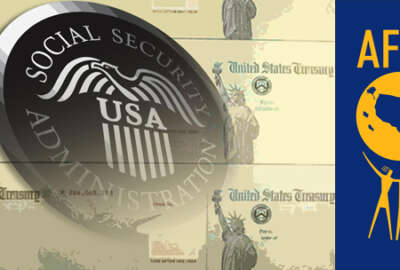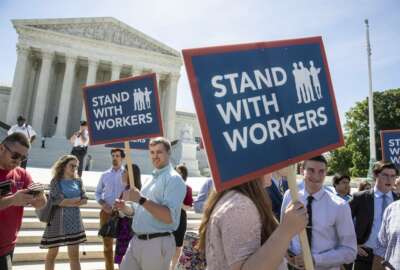
White House versus fed unions: Can both be winners?
The White House believes federal unions across the country have been taking taxpayers for a ride using “official” time, which is meant to monitor health and...
If each side plays its cards right and a little luck comes their way, both the Trump administration and federal employee unions can come out as winners with those who count the most to them. Conservative anti-union voters and potential dues-paying members of the next generation would give unions the financial and political clout they need to both stay alive and thrive.
The White House believes federal unions across the country have been taking taxpayers for a ride using “official” time, which is meant to monitor health and safety issues in contracts, to conduct union business. The administration has started to crack down on them as a result. It plans to limit the amount of government-paid time union officers get and require them to pay rent for equipment and office space they once used for free.
Unions believe that Republicans in general but President Donald Trump more than most of his GOP predecessors just flat out loath unions — especially unions inside the government, not including Congress, of course. The much-publicized “drain-the-swamp” campaign is aimed in part at helping contractors through privatization of federal operations, such as carrying the mail, collecting taxes and running national parks. All the while federal bureaucrats, a favorite target, would be easier and faster to fire for poor performance if the unions lost appeal rights or withered away.
Unless unions block the action in the courts they will be in a much weaker position to represent members and nonmembers in their bargaining unit than they are today.
While the crackdown on unions is applauded by many — look what Wisconsin did to its public employee unions — it could also be a recruiting tool and a wake-up call to the majority of white collar workers who do not belong to any union. While many if not most of agencies’ nonmembers are “represented” by unions, the majority don’t carry a union card, attend meetings or pay dues of any kind. Loyal union members call their unaffiliated coworkers “free riders,” plus a variety other names. But you get the idea — they don’t like their dues going to support a non-member who appeals to the union when denied a promotion or threatened with disciplinary action.
With few exceptions most union members are chronologically mature. Most nonmembers are younger and except for WiFi or gym membership are less likely to pay for a service they can get for free. That’s good math but not necessarily good political thinking, especially when the boss has made it clear he’d be happier with vastly fewer bodies in the office, yours included.
At the end of the day both the unions and the politicians who want to put them out of business could come out as winners. The administration would improve its street cred for taking a powerful shot at the unions, and unions could pick up more dues-paying members that would improve their clout at the grass-roots level and in Washington. What’s your guess?
Nearly Useless Factoid
By Amelia Brust
When threatened, ladybugs will secrete an oily, foul-tasting fluid from joints in their legs.
Source: National Geographic Kids
Copyright © 2025 Federal News Network. All rights reserved. This website is not intended for users located within the European Economic Area.
Mike Causey is senior correspondent for Federal News Network and writes his daily Federal Report column on federal employees’ pay, benefits and retirement.
Follow @mcauseyWFED
Related Stories





